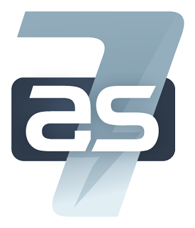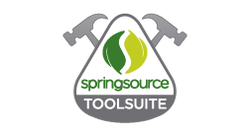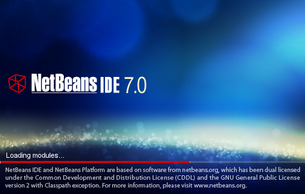
 JBoss AS7 has today been released just over 6 months after the first Alpha release was made in November last year. AS7 provides a fully Java EE 6 Web Profile certified application server. AS7 sports a vastly decreased boot time with RedHat stating a 10-fold reduction in startup time over previous versions, bringing AS7 in line with Tomcat startup times. In addition to performance increases provides with AS7, user management has also been carefully considered whilst developing the update. "Consistent and powerful management is available out of the box, including a polished, user-friendly web console, Java and HTTP APIs and a command line tool (CLI). The web console provides a clear perspective into the server runtime, while the programmatic APIs can be leveraged by tools, scripts and geeks."
0 Comments
The Eclipse Foundation has announced the immediate availability of Eclipse Indigo - Eclipse 3.7. This release follows the Eclipse tradition of the annual Eclipse Release train. This year, the key new features for the release include:
Several different versions of Eclipse are available including releases for Java Developers, Java EE Developers, Report Developers and JavaScript Developers. Indigo can be downloaded immediately from the project site.
 SpringSource, the people behind the Spring Framework, have today released an upgrade to the SpringSource Tool Suite. Version 2.6.1 of SpringSource Tool Suite provides support for vFabric tcServer 2.5. vFabric tcServer is described as "an enterprise version of Apache Tomcat, the widely adopted application server. Optimized for Java Spring users, with a lightweight footprint, vFabric tc Server is ideally suited for usage in modern virtual environments." Full release notes for STS can be downloaded from here. STS can be upgraded from within the toolsuite itself if you have a previous version, or downloaded from SpringSource.com. vFabric tcServer developer edition can be downloaded from VMWare.
 After nearly 6 months of beta testing, NetBeans 7.0 has been released and is now available for download from the NetBeans site. As usual, the Java SE, Java EE, C/C++ and PHP packages are available for download together with a package that contains all NetBeans modules. Additional functionality can be added to any of the base packages using the buildin Plugin Manager. NetBeans 7 provides many new features including:
To support NetBeans 7, a new plugin portal has also been released. The NetBeans team describe the new portal as using: "modern web technologies; features powerful searching capabilities and improved performance; provides an optimized user interface; and has resolved many design drawbacks of its predecessor."
Shane Bryzak has today announced the release of Seam 3. Seam 3 is a modular collection of extensions to Java EE 6 based upon CDI which can be downloaded individually or as a complete bundle. Shane describes Seam 3's goal as: "to enable developers to create rich, standards-based internet applications by solving many of the challenges encountered when developing software in today's connected world." Seam 3 contains many components to help developers build web applications including components for JSF, Wicket, Security, Persistence and more. A full list of modules and their descriptions can be found at the Seam project site. Seam 3 will work with ant Java EE 6 compatible application server such as JBoss AS or GlassFish 3.1 or by any servlet container with the Weld servlet extension.
The NetBeans team has announced that NetBeans IDE 7.0 RC1 is now available for download. "NetBeans IDE 7.0 introduces language support for development to the Java SE 7 specification with the JDK 7 platform. The release also provides enhanced integration with the Oracle WebLogic server, as well as support for Oracle Database and GlassFish 3.1. Additional highlights include Maven 3 and HTML5 editing support; a new GridBagLayout designer for improved Swing GUI development; enhancements to the Java editor, and more." The full release of NetBeans 7.0 is expected in early April.
SpringSource has announced a new release of the SpringSource Tool Suite (STS). STS 2.6.0 is now available for download from the project's download site. The STS is an Eclipse based development environment geared for Java Spring developers. It provides easy access to the latest vesion of Spring via a set of template projects that provide a quick start for Spring Developers. STS is supplied with a developer edition of the SpringSource tc Server to assist in rapid development and testing of Spring apps. Version 2.6.0 of STS provides many new features, some of which include:
Yesterday saw the release of the Dojo JavaScript toolkit version 1.6. Dojo supports all the main browsers including all the major desktop browsers and Android and iOS mobile and tablet devices. It provides a rich JavaScript toolkit for web developers and includes (amongst others) UI components, AJAX support and facilities to manipulate the DOM etc. Dojo 1.6 supports many new facilities such as support for the LESS CSS framework, HTML 5 data attributes and spider and gannt charts. A full list of the new features in version 1.6 can be found in the project's release blog entry. Dojo can be downloaded from here.
GlassFish 3.1 has been released and is now available for download as an Open Source edition or as an Oracle Supported edition. GlassFish 3.1 fully supports the Java EE 6 Web Profile and improves over the previous version by providing new application development facilities, clustering and load balancing support and centralized administration. "GlassFish Server 3.1 is the successor of the earlier 3.0.x releases featuring a modular, flexible runtime based on the OSGi standard now with fully-featured clustering with centralized administration of multiple clusters and high availability of stateful components. Developers also benefit from the simplified programming model and productivity improvements offered by Java EE 6. Because GlassFish Server 3.1 uses a microkernel architecture based on OSGi, developers can begin with the Java EE 6 Web Profile and use the Update Center to easily upgrade to the full Java EE 6 platform! GlassFish Server 3.1 is also the fastest open source application server offering advanced features such as application versioning, application-scoped resources, and great development tool support from NetBeans 7.0, Eclipse and other popular IDEs." The Oracle Press Release can be read here.
The JBoss Seam team has released the first beta of Seam 3.0.0 "This release is the first consolidated release of all Seam modules in a single downloadable bundle. If you are currently using Seam in your Maven-based project, then the good news is that you probably need to do nothing (except maybe check the Maven artifact versions in your pom file are the latest for the Seam modules you are using). Please be aware that as this release is the first beta, it will be a little rough around the edges. The next release (Beta 2) is planned for 11 February, and will contain consolidated api and reference documentation and be more polished in general." Seam 3 is a collection of modules based upon CDI that help developers build Java EE 6 applications. At present there are nearly 20 moduels that make up Seam 3, including those for Configuration, JSF enhancements, GWT, Interntionalization etc. A full list of modules and documentation on how to use them and integrate them into applications can be found on the Seam 3 site. The software can be downloaded from:
|